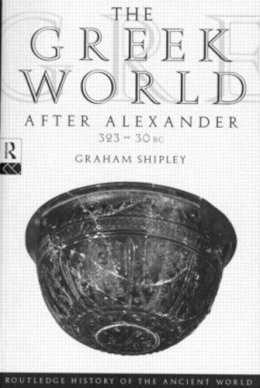
Stock image for illustration purposes only - book cover, edition or condition may vary.
The Greek World After Alexander 323-30 BC
Graham Shipley
€ 68.15
FREE Delivery in Ireland
Description for The Greek World After Alexander 323-30 BC
Paperback. The book examines social changes in the old and new cities of the Greek world and in the new post-Alexandrian kingoms, within the context of an up-to-date appraisal of the military and political changes after Alexander. Series: The Routledge History of the Ancient World. Num Pages: 608 pages, 1 black & white tables. BIC Classification: 1QDAG; HBJD; HBLA; HBTB. Category: (P) Professional & Vocational; (UP) Postgraduate, Research & Scholarly; (UU) Undergraduate. Dimension: 233 x 157 x 33. Weight in Grams: 894.
The Greek World After Alexander 323–30 BC examines social changes in the old and new cities of the Greek world and in the new post-Alexandrian kingdoms.
An appraisal of the momentous military and political changes after the era of Alexander, this book considers developments in literature, religion, philosophy, and science, and establishes how far they are presented as radical departures from the culture of Classical Greece or were continuous developments from it.
Graham Shipley explores the culture of the Hellenistic world in the context of the social divisions between an educated elite and a general population at once more mobile and less involved in the political life of the Greek city.
Product Details
Publisher
Taylor & Francis Ltd United Kingdom
Number of pages
600
Format
Paperback
Publication date
1999
Series
The Routledge History of the Ancient World
Condition
New
Weight
902g
Number of Pages
608
Place of Publication
London, United Kingdom
ISBN
9780415046183
SKU
V9780415046183
Shipping Time
Usually ships in 4 to 8 working days
Ref
99-1
About Graham Shipley
Graham Shipley, Leicester University
Reviews for The Greek World After Alexander 323-30 BC
'The Greek World After Alexander will surely receive a warm welcome from students and others with a serious interest in this period.' – History Today 'This is an excellent book, the best introduction to the Hellenistic world available in English, and perhaps the best single-volume introduction available in any language.' – Journal of Hellenic Studies
